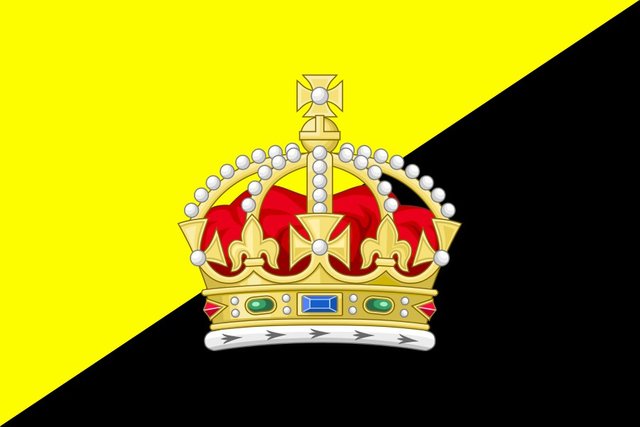
By Insula Qui
Author’s note: The main themes of this series will be further expounded upon in my upcoming book Anarcho-Monarchism, which will be available in April.
Alleviating Burdens of Property
As established in Part II, the entire burden of owning property is usually too much for a single person to bear. Any person who fully owns property in a libertarian social order has the responsibility of an absolute monarch. He would have to uphold all control over legislation, arbitration, and upkeep when it comes to his property. The only way to alleviate this burden is to outsource part of it to someone who is more capable of managing the property. This is necessarily a person or group of people who can harmonize the interests of multiple property owners into a cohesive social structure which allows for property to be used to the greatest possible extent. When market forces are properly in order, this is all but inevitable due to the effects of forming economies of scale and creating a more advanced division of labor.
If each person is fully responsible for his own property, then even the people who are least suited for managing property are in charge of their property. When the management of property becomes outsourced, this is no longer the case. The logic supporting the division of labor still applies even where libertarians might not want it to apply. Having a society means that there will be certain people who specialize in the management of property. There will be people whose job is to ensure that the burden of holding property is reduced. Even when there is no state, these people constitute a government.
Government and State
One must not conflate the government with the state. The state is an entity that monopolizes force, while government is simply the managerial entity in control of property. The state claims partial ownership over property, which gives it the ability to tax and legislate. It is difficult to conceive of a government that lacks a state, but this is simply due to a limited imagination. The abolition of the state does not imply an abolition of governance; quite the opposite. The proliferation of individual sovereignty will bring about an increase of governance and statecraft. Because owning property is a burden, governance services become necessary for human flourishing. The only exception would be if all people in society are capable sovereigns, which is never going to be the case.
There are individuals who are sufficiently capable at managing their own property so as to have no need for outside governance. However, a significant number of these people already have libertarian proclivities and are drawn to philosophical libertarianism. And since the majority of the population are not libertarians, we can only assume that most people are not capable of shouldering the entire burden of their property ownership. This produces the demand for governance, and this is why there is a natural tendency to form states. Even if one does not support them, governance structures will characterize human society even without a state.
Most anarcho-capitalists would argue that there is actually no demand for a government, and that the bureaucratic government would be replaced by decentralized market actors for managing land. This ignores that even small associations for managing apartment buildings and housing developments are structured like governments. There is no possibility that governmental structures will not emerge from the demand for systems which can harmonize different private interests. These governmental structures must be value-productive in order to survive, as they are still within the confines of the libertarian society and are not subsidized by a state. All states fundamentally weaken property rights to increase their own power, and will always act according to the taxes they collect.
Read the entire article at ZerothPosition.com
Downvoting a post can decrease pending rewards and make it less visible. Common reasons:
Submit